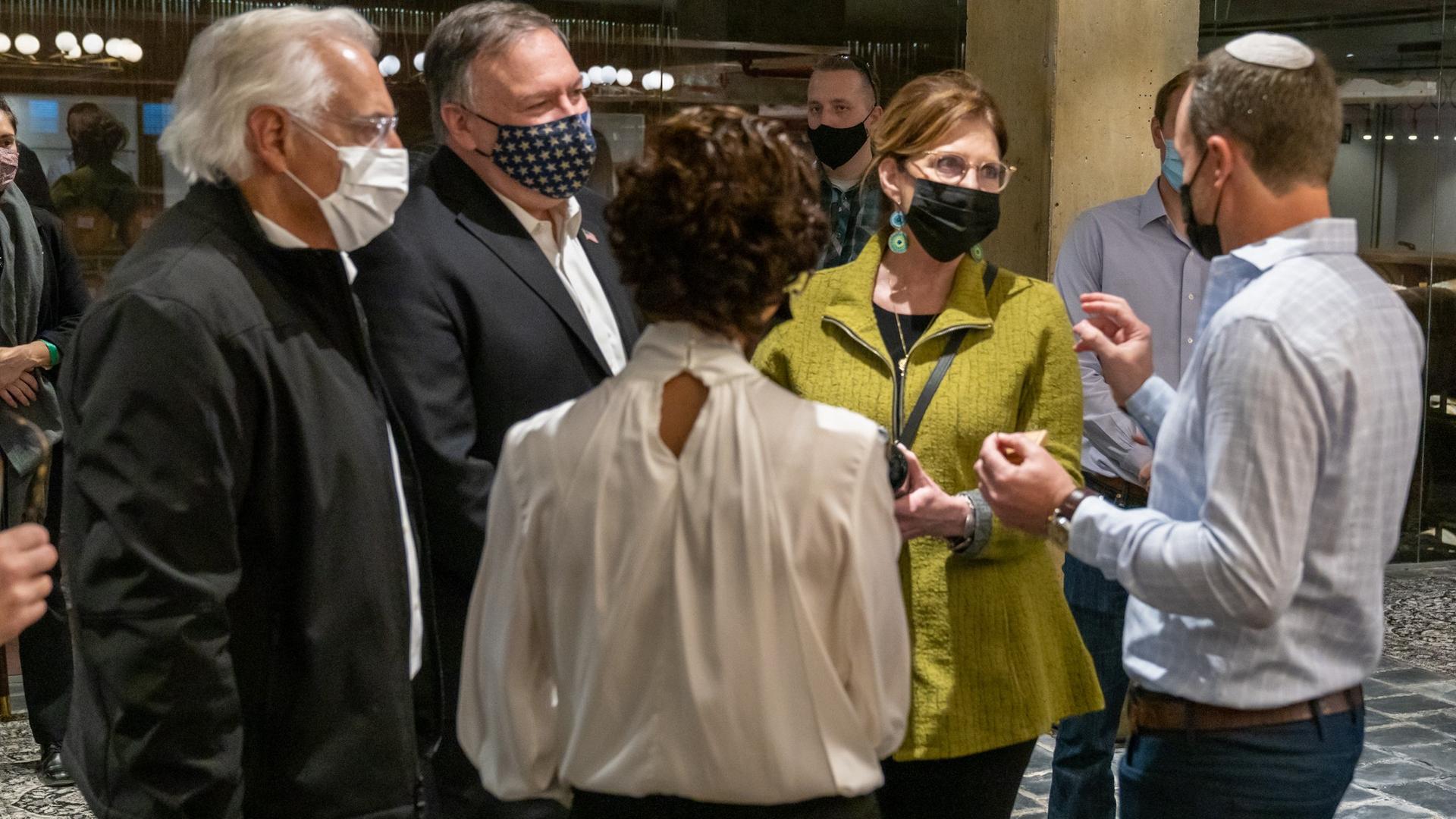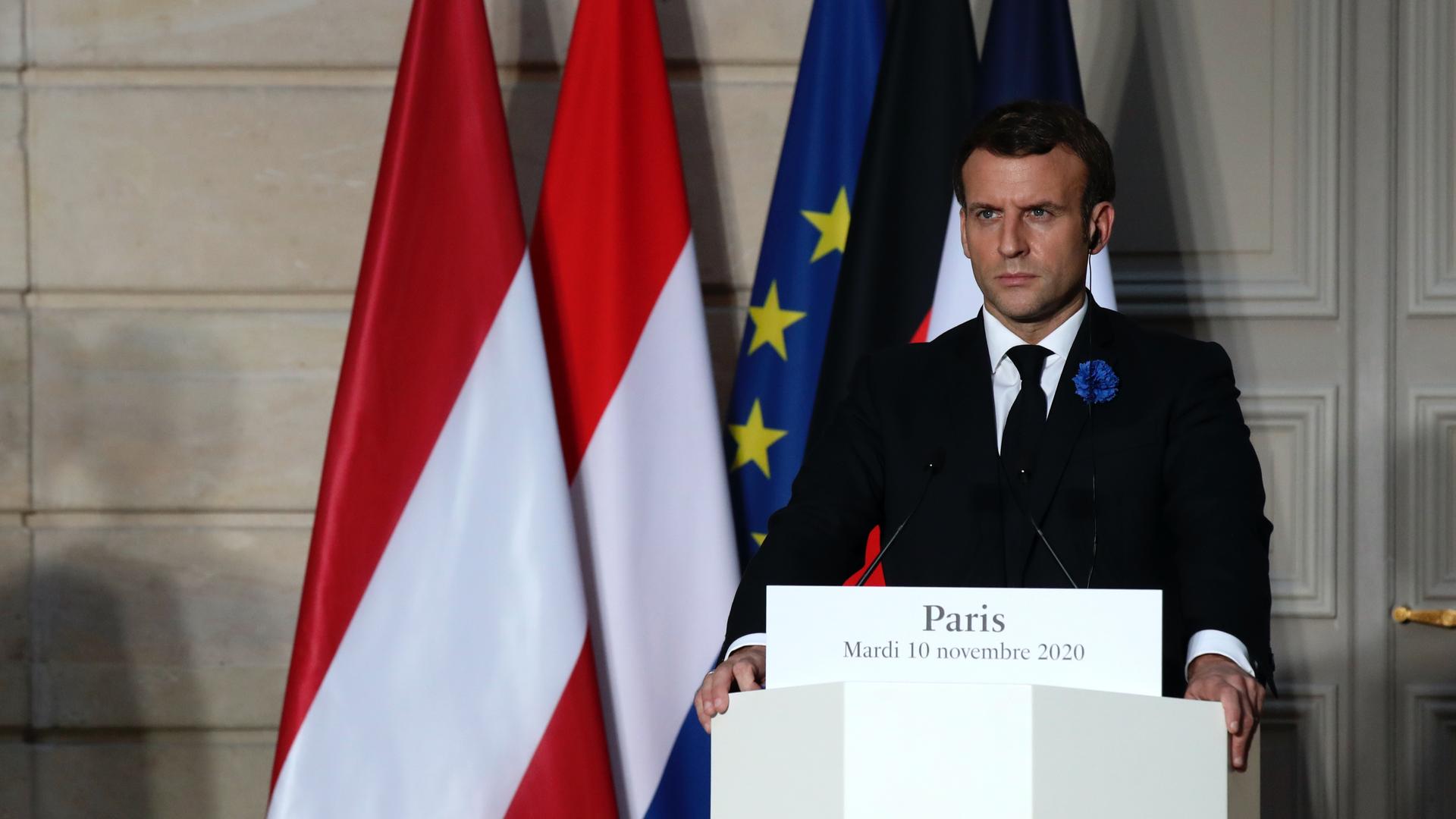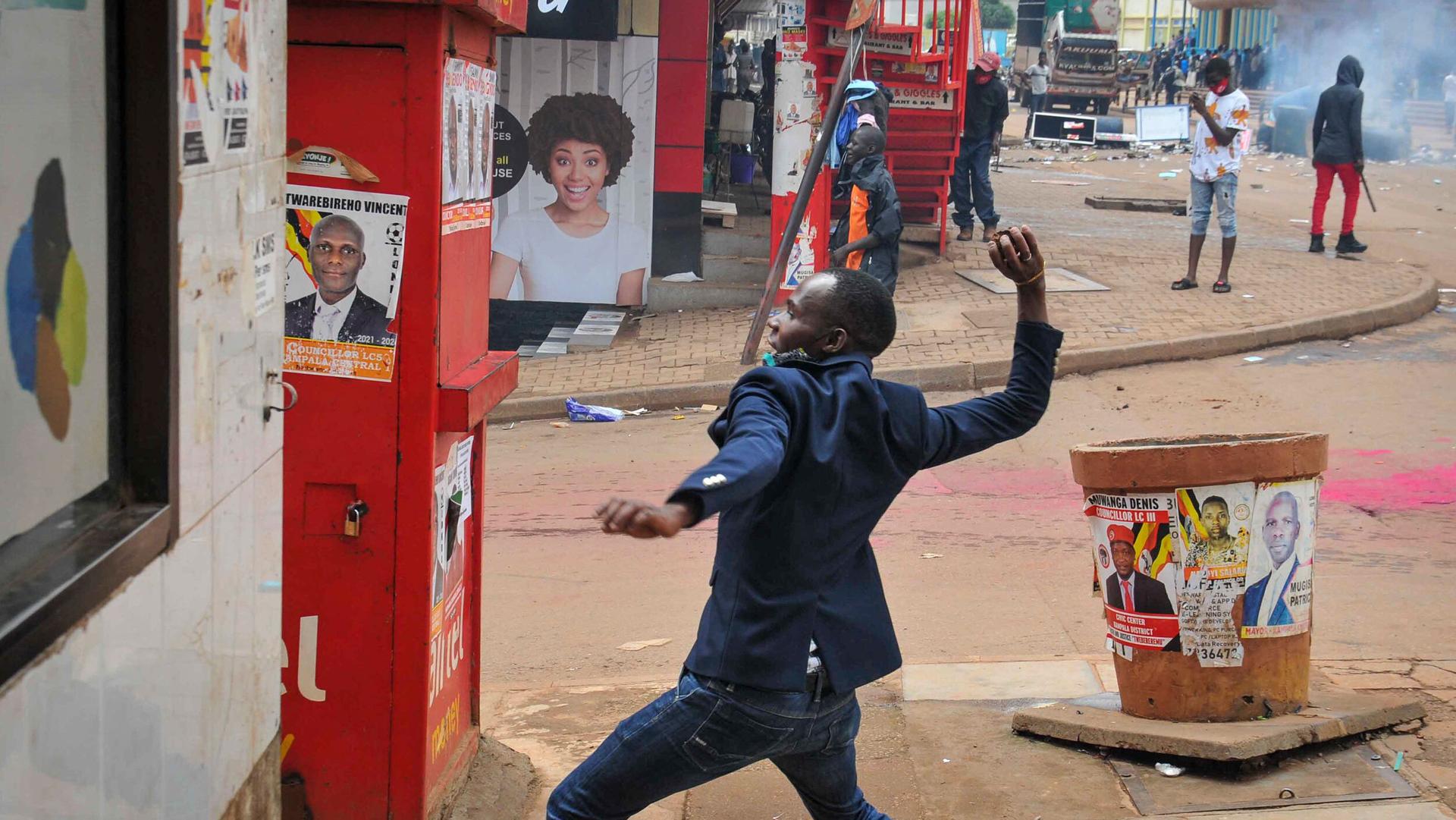Dozens killed in Uganda political violence; WHO chief accused of supporting Tigray rebels; Mexico passes 100,000 COVID-19 deaths
A person prepares to throw a rock during clashes between security forces and protesters supporting opposition presidential candidate Bobi Wine, in downtown Kampala, Uganda, Nov. 18, 2020.
Top of The World — our morning news roundup written by editors at The World. Subscribe here.
At least 37 people have been killed in Uganda’s worst election-related violence in decades, with protests breaking out over the arrest of opposition figure and presidential contender Bobi Wine. The 38-year-old musician-turned politician was granted bail after his arrest Wednesday, with the government accusing him of violating COVID-19 restrictions that limit gatherings — including those where candidates address their constituents — to 200 people.
“Let Museveni know that we are not slaves and we shall not accept to be slaves,” Wine said, referring to the incumbent Ugandan President Yoweri Museveni. “We shall be free.” A spokesman for the president, who is seeking a sixth term, said he planned to address the nation Sunday.
Wine, whose real name is Robert Kyagulanyi, has frequently been detained in the last few years, with authorities not pleased with his calls for Museveni to step down after more than three decades in power. The celebrity singer said police had broken into his vehicle and brought him into custody. Around 350 demonstrators were taken in by police after Wednesday’s street clashes, and security forces maintained a heavy presence in the capital Kampala on Thursday.
What The World is following
WHO Director-General Tedros Adhanom Ghebreyesus denied accusations made by his own Ethiopian government that he is working with neighboring countries to provide weapons and other assistance for the Tigray rebels in a worsening civil conflict. Tedros is known around the globe for his efforts to combat the coronavirus, but he’s also a top official in the Tigray People’s Liberation Front — the party that governs Ethiopia’s northern Tigray region and is now warring with the country’s federal government. Meanwhile, the UN is making preparations to help handle a massive influx of refugees from Tigray to Sudan.
Mexico has surpassed 100,000 deaths from COVID-19, the fourth nation to do so after the US, Brazil and India. The country ranks sixth in per capita deaths from the coronavirus, coming in just above Italy and the US. Mexican President Andrés Manuel López Obrador has been criticized for a slow pandemic response and a tendency to downplay the public health threat. He has also said amulets and prayers will personally protect him against the virus.
From The World
What does Pompeo’s West Bank visit mean for US-Israel policy?

America’s top diplomat Mike Pompeo made history Thursday by becoming the first US secretary of state to visit an Israeli settlement in the occupied West Bank, the entirety of which Palestinians claim as a part of their future state.
The visit is widely seen as Pompeo’s last play to the Republicans’ evangelical Christian base as the most pro-settler administration in history nears its end.
Meanwhile, Pompeo looks ahead to a possible presidential run in 2024. And in Israel, it is seen as a parting gift to the country’s right-wing government and the settler community in the West Bank, a contested region that was captured from Jordan in the 1967 war.
French Muslims worry ‘separatism law’ may create more division

In the aftermath of two recent terrorist attacks, French President Emmanuel Macron said that Islam “is in crisis all over the world.”
Now, Macron has proposed a so-called “separatism law” that would, among other things, monitor international funding coming into French mosques, crack down on online hate speech and create a special certificate program for French imams. But there are concerns that the law would create more divisions in an already tense situation.
Bright spot
As we prepare ourselves for hearing Christmas music around the clock for the next month, here’s something for your furry canine friend so they can get in on the … fun. UK-based pet food company Tails.com has released what they’re billing as the first Christmas song ever produced specifically for dogs.
In case you missed it
Listen: European Union pandemic recovery fund facing crisis

European Union countries whose economies have been battered by the coronavirus pandemic are impatiently waiting to get their hands on the recovery fund, sanctioned by the EU. But earlier this week, Hungary and Poland effectively vetoed that budget worth a total of $2.1 trillion. And, following two extremist attacks the past month in France, President Emmanuel Macron has begun pushing a new proposed law that would crack down on so-called “Islamist separatism.” Also, a pet food company has released what they’re billing as the first Christmas song ever produced specifically for dogs.
Don’t forget to subscribe to The World’s Latest Edition podcast using your favorite podcast player: RadioPublic, Apple Podcasts, Stitcher, Soundcloud, RSS.
The story you just read is accessible and free to all because thousands of listeners and readers contribute to our nonprofit newsroom. We go deep to bring you the human-centered international reporting that you know you can trust. To do this work and to do it well, we rely on the support of our listeners. If you appreciated our coverage this year, if there was a story that made you pause or a song that moved you, would you consider making a gift to sustain our work through 2024 and beyond?
